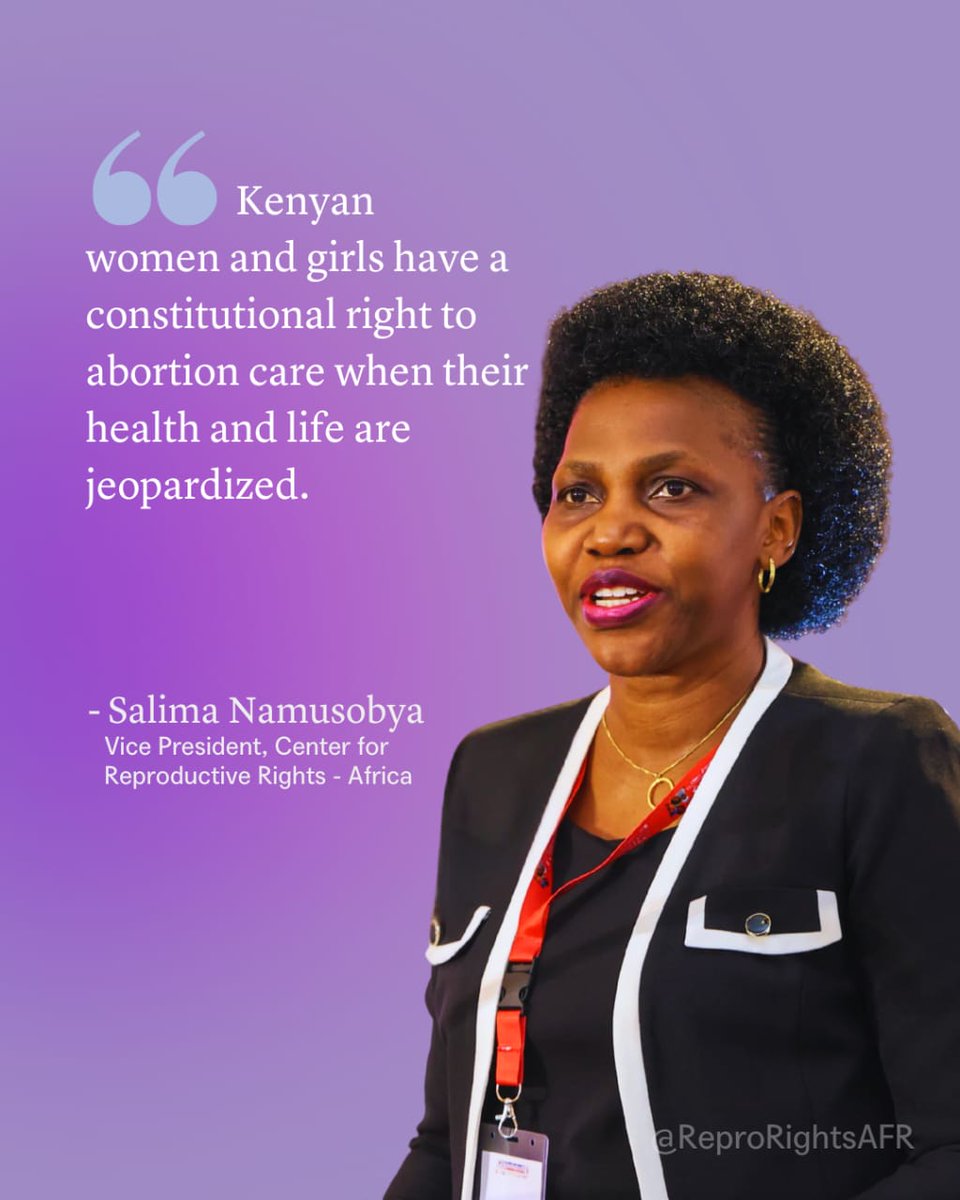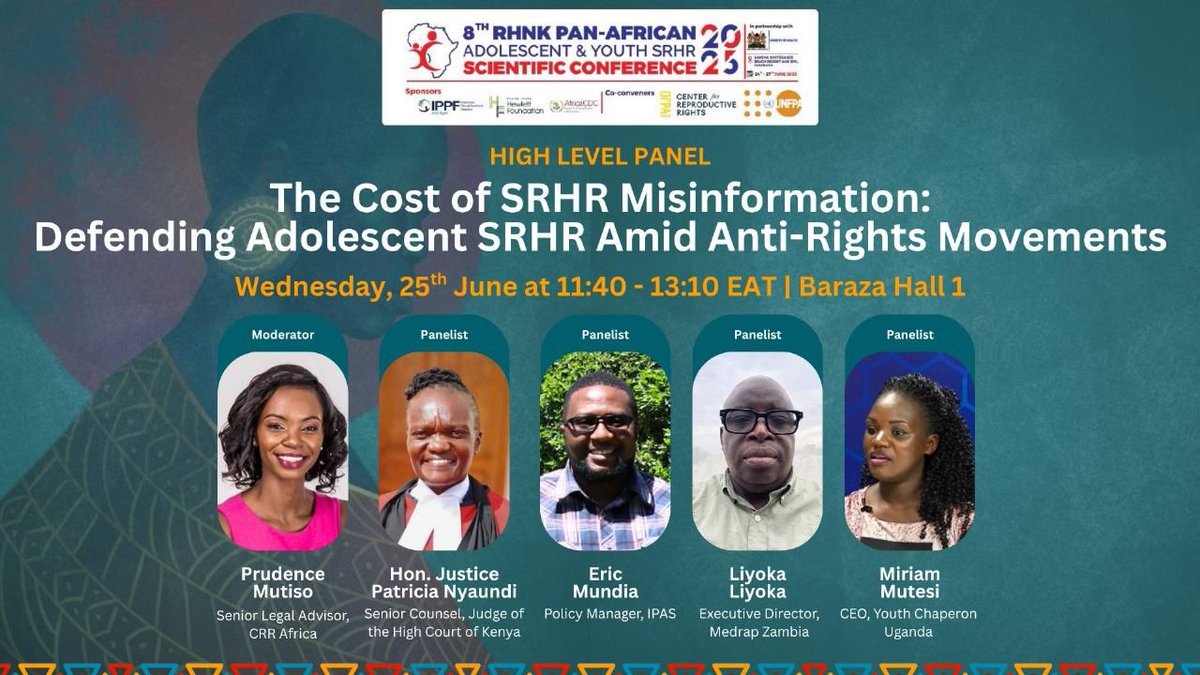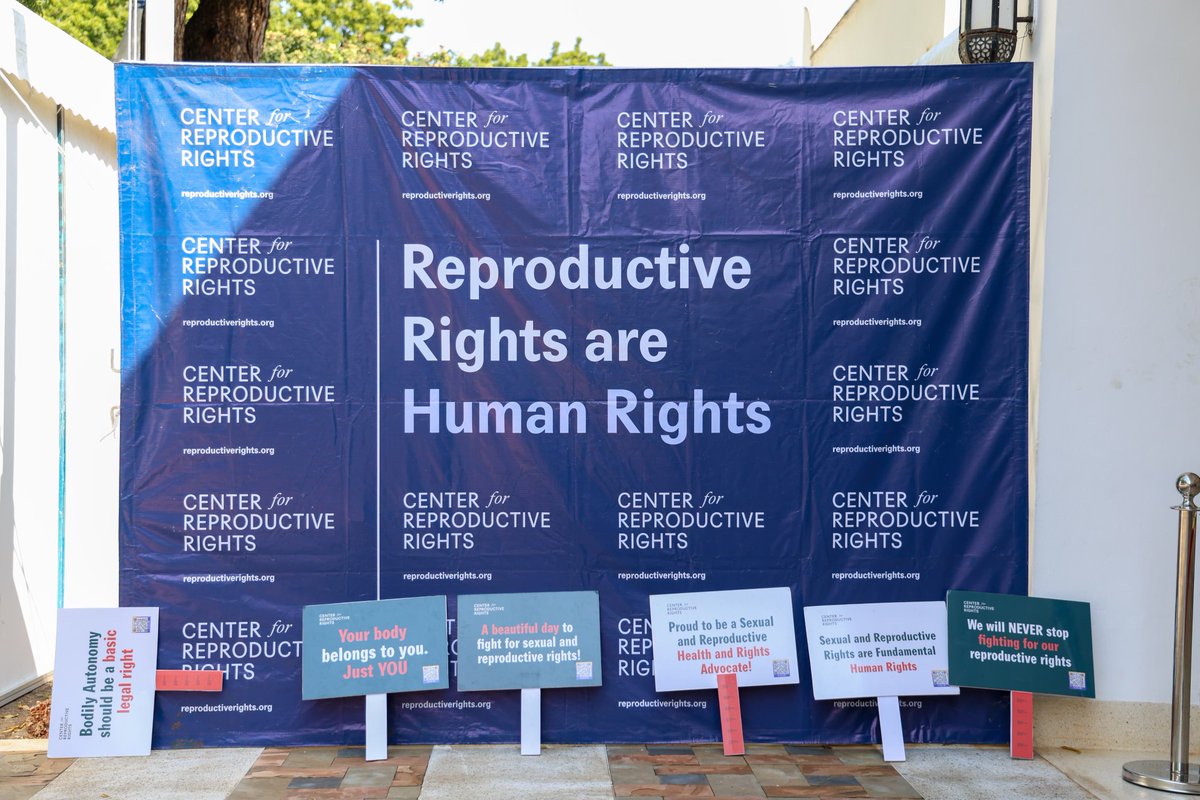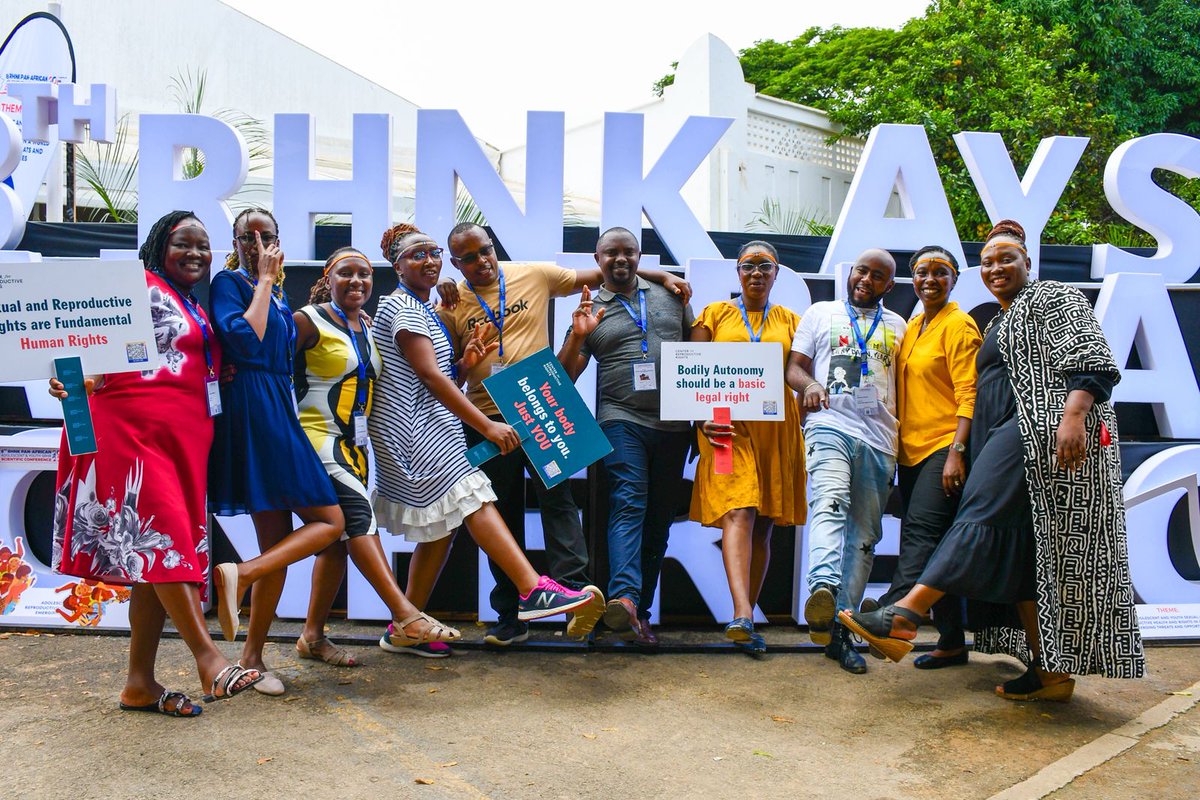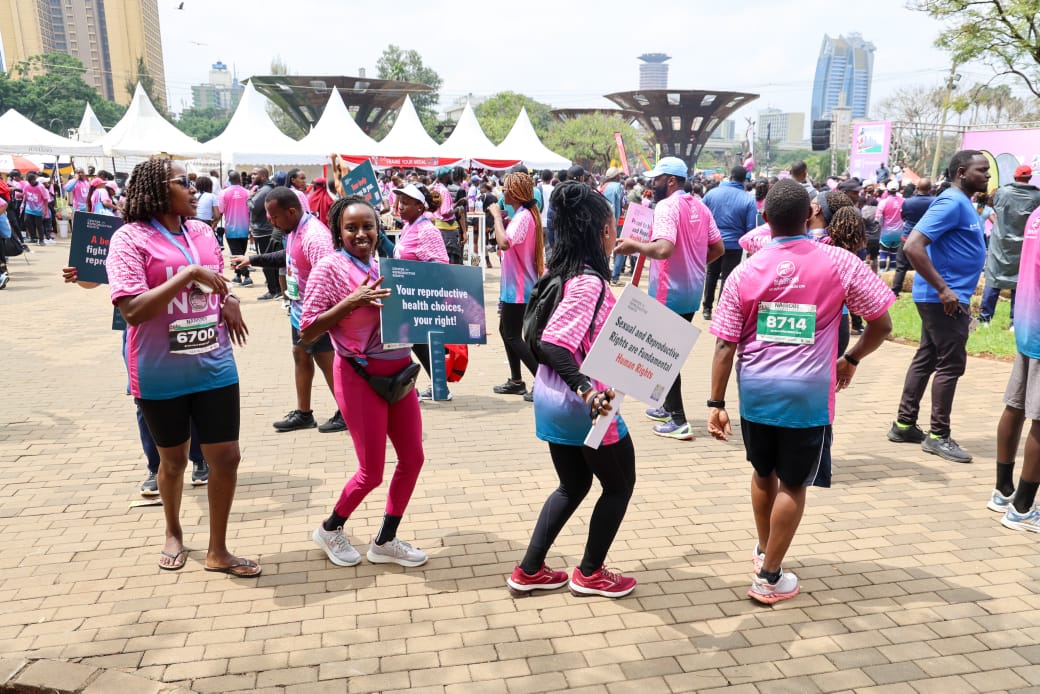
salima namusobya
@salima_sn
Human Rights Advocate
ID: 630859940
09-07-2012 06:52:03
11,11K Tweet
3,3K Followers
1,1K Following


Teen pregnancy remains high in Africa, with over 25% of girls giving birth by age 18. At the validation meeting Dr. Robert Nanima, Member of the ACERWC stressed the urgency of putting adolescents at the center of SRHR laws and policies. The study under review draws from Article
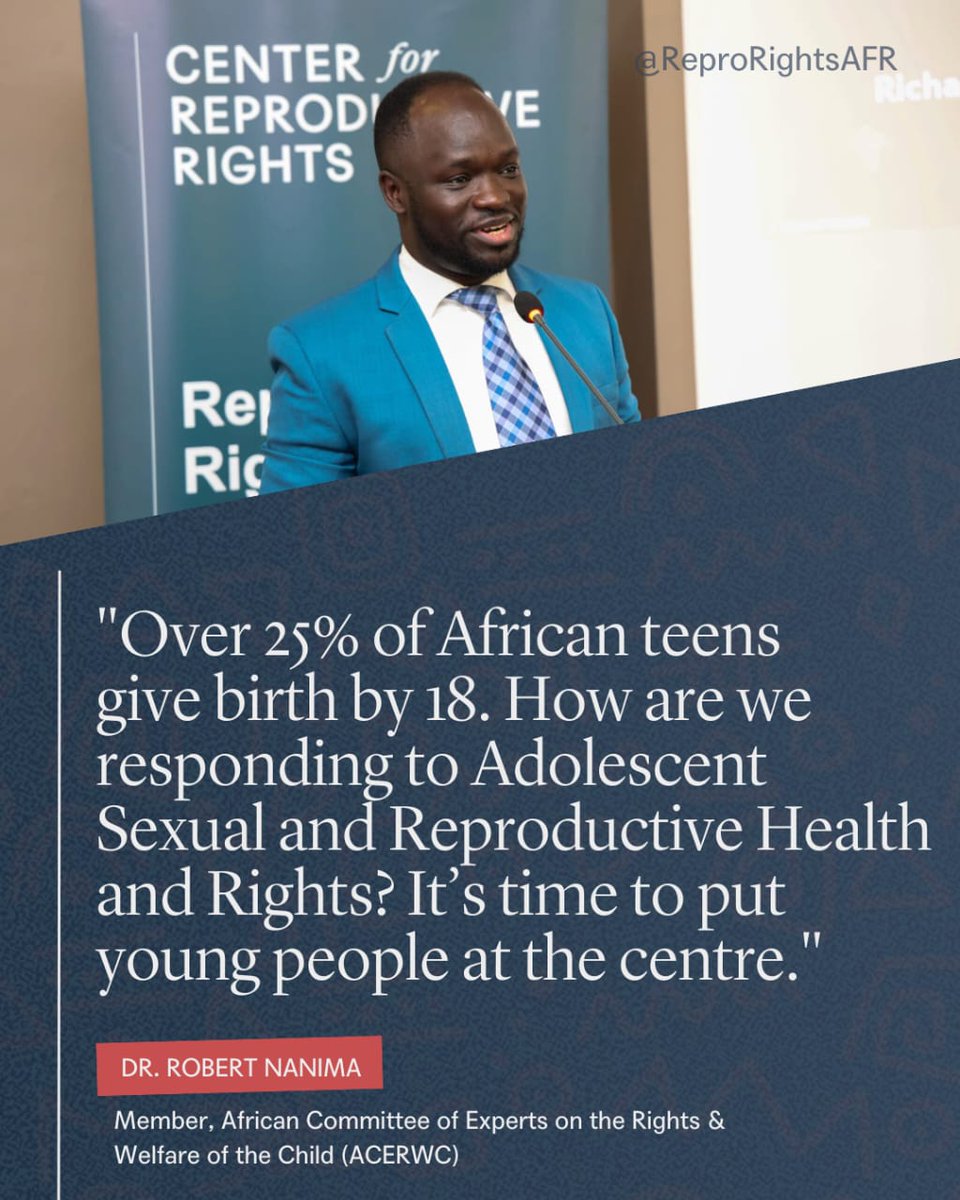


Will you attend the Reproductive Health Network Kenya next week in Mombasa? Join the side session by the Center for Reproductive Rights Africa on "Enhancing Bodily Autonomy" | Side Event at #RHNK Mombasa 🗓️ June 25, 2025 Join us for a bold conversation on bodily autonomy—centering youth voices, challenging harmful norms, and





“Africa’s adolescents and youth deserve more than promises - they deserve action.” At the 8th #RHNK AYSRHR Pan-African Conference, salima namusobya reaffirmed the Center for Reproductive Rights’ commitment to advancing bodily autonomy, fighting regressive laws, and centering youth


"You are not just beneficiaries, but rights holders. You are the movement." At the 8th #RHNK AYSRHR Pan-African Conference, salima namusobya reminded us that young people are not on the sidelines — they’re leading the charge for sexual and reproductive rights across Africa. From
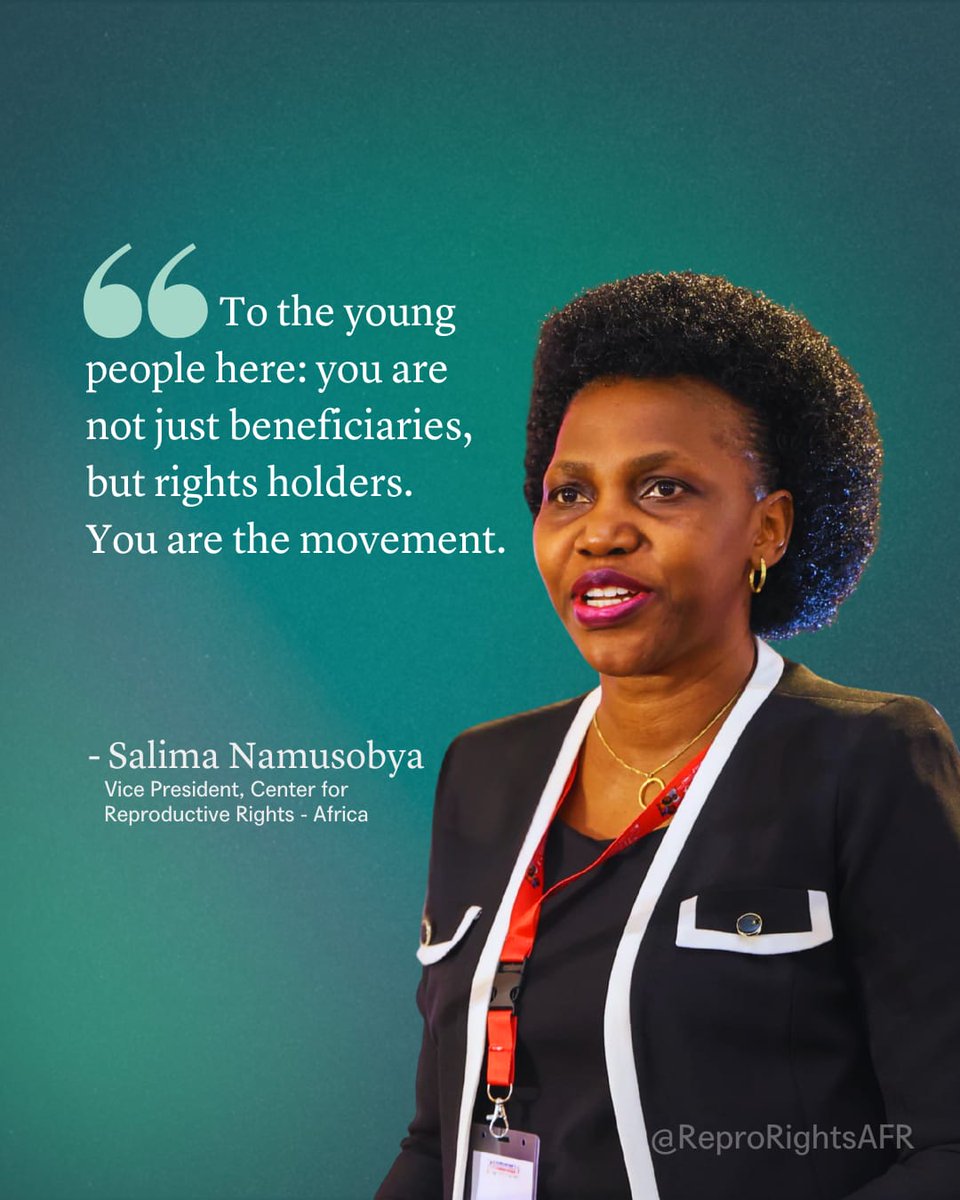
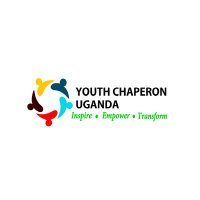
Our Executive Director, MUTESI MIRIAM will participate in a panel discussion at the #RHNKPanAfricanConference. Join us as we tackle "The Cost of Misinformation: Defending Adolescent SRHR Amidst the Anti-Rights Movement." #RHNKConference2025 🗓 Date: 25th June 2025 📍:Mombasa
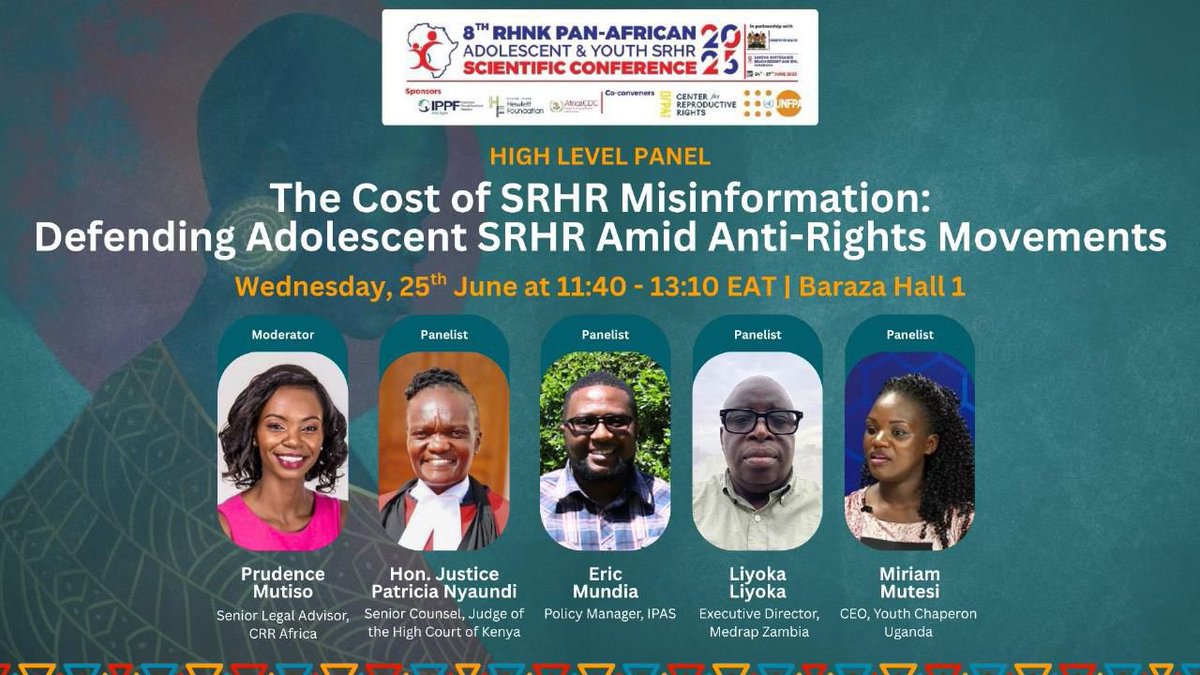


Happening Now – Day 2 of the Reproductive Health Network Kenya Pan-African AYSRHR Conference. The ongoing panel discussion is focused on the cost of misinformation in sexual and reproductive health and rights (SRHR). Key points being addressed include: • How misinformation and disinformation
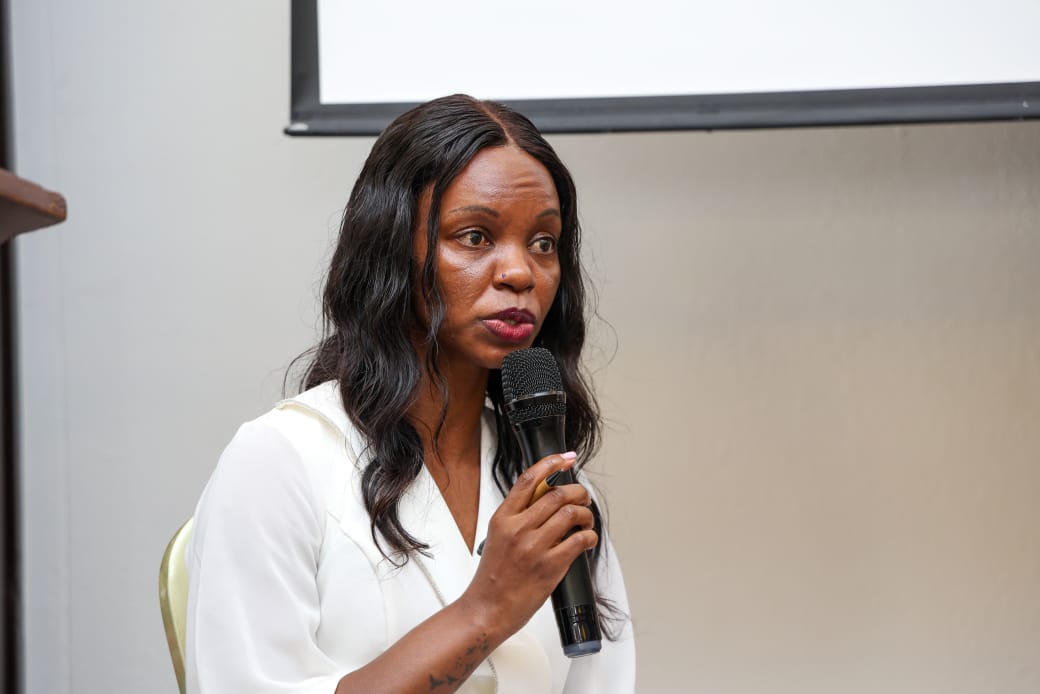

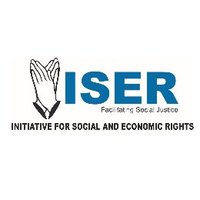
In Uganda, 22% of adolescent girls drop out of school due to pregnancy, and only 8% ever return to complete their education locking them into cycles of poverty and disadvantage they did not choose. Following the national stakeholders dialogue, convened by ISER Uganda on 18 June
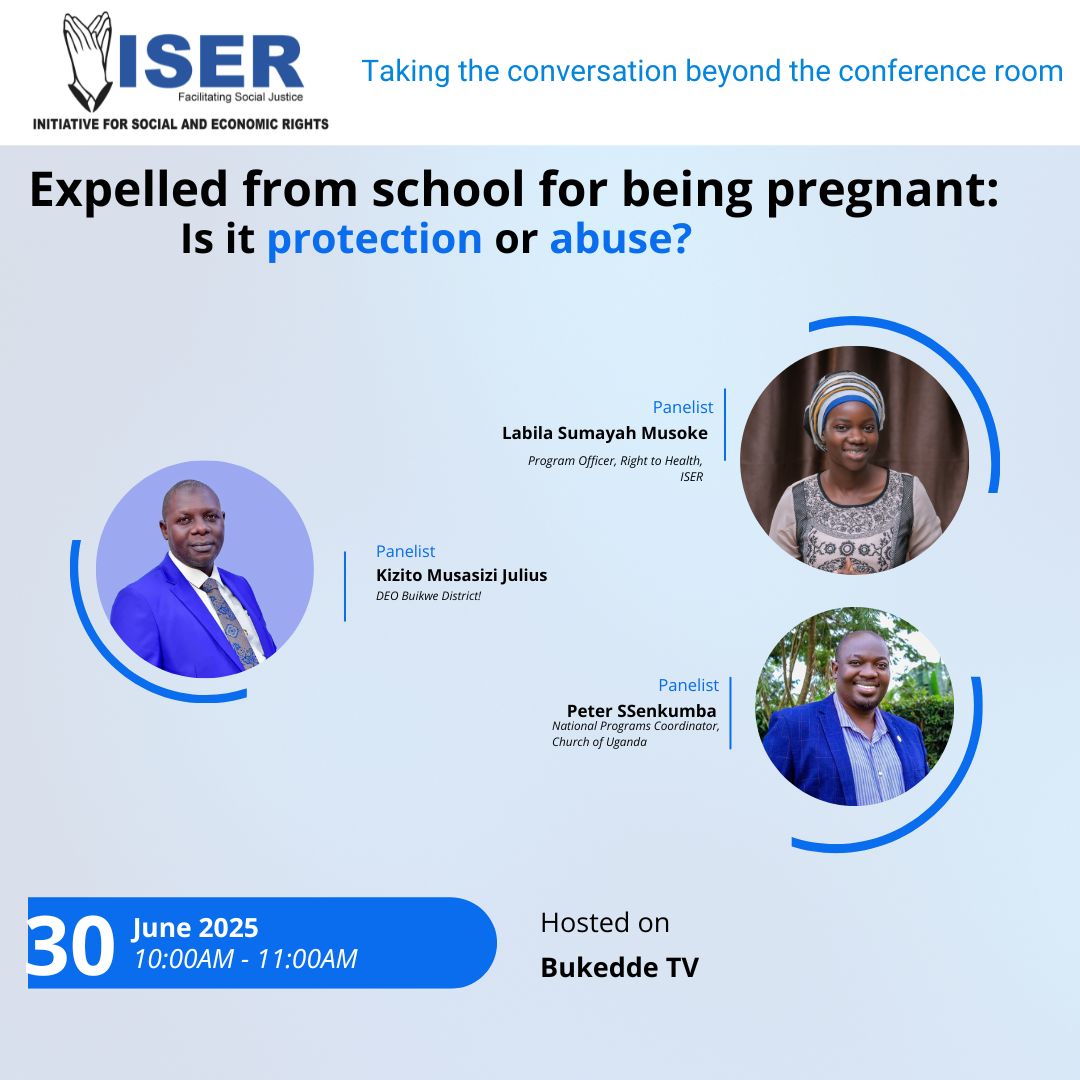

Kenya's Ministry of Health (Ministry of Health ) in 2012 developed a policy document, “Standards and Guidelines for Reducing Morbidity and Mortality from Unsafe Abortion in Kenya,” guiding health care providers on when and how they could provide safe and legal abortion and post-abortion


The Kenyan Constitution guarantees access to abortion care when a woman’s health or life is at risk, a fact salima namusobya continues to affirm. Still, the system failed JMM. Stigma and a lack of post-abortion care after an unsafe procedure led to her death. A preventable tragedy.
